Last time I wrote about arriving in Ikaria, Greece. Below is a continuation of that post.
Our trip didn’t begin until we met Nick because up until that moment, the community of Ikaria wasn’t visible to me. They were at home working in their gardens or on a boat catching dinner. Ikaria is a community with collective values, and until I accessed that, I wasn’t going to understand much about the island at all.
I thought my trip was to witness older folks living happily into the triple digits. I’ve been wanting to understand how people retire well, and when I want to learn about something, I look for mentors to learn from. Examples in action. The first I found was an enclave of expats living in Sayulita, Mexico. Their community grew through Zumba-ing together every morning. I discovered they were mostly women, single by choice or widowed. While they lived independently, the group was tight-knit and at-the-ready to provide support when needed. They were especially appealing to me because they’re all accomplished, bold, fascinating women. After seeing this chosen family circle, I thought for the first time, now this is a retirement vision I can get behind.
With Ikaria, I was hoping to discover another example, and I did. This fishing village felt similar to Sayulita, but their community network extended out much further, to include the whole village, maybe even the whole island. Instead of being expats who are connected through values and a new place, Ikarians are close because they’re united through a shared place and experiences. They grew up together, around parents who also grew up together, on this land. Many dated each other and everyone knows everyone’s business. Some went abroad and established families and careers, but their orbits always circled back here, to their roots.
This made me wonder what it’s like to be on the island as a young adult or in mid-life. The slower pace feels at odds with the momentum of building your life and career in your 20s, 30s, and 40s. Of course, for a certain middle-aged visitor who’s contending with the impact her nomadic life is having on her lifestyle, career, and community, it was the perfect storm of an arrival.
While I came to find retirement mentors, what I left with was something else, surprising. I’ve been wrestling with the role of technology in my life. I know something is wrong. I know it makes me unhappy, but with how ubiquitous it is, I haven’t been sure how to initiate a change. Reflecting on it now, it feels like I landed in Ikaria for a test. How would I react to the land where there aren’t clocks, and it’s rumored that time stops? Would being in a place with very little digital influence untether me from the dependence I’ve had on technology for the last 15 years?
My first lesson came by way of meeting Nick that morning. He had come to the coffee shop without his phone. Why would he bring it, everyone in town was right there, in the coffee shop. His phone stayed at the house until 3 pm when he walked back to call his daughter in Chicago. He didn’t bring it with him so he could call her at three, instead, he returned to his kitchen. Although it was a cell phone, he treated it like a landline.
If he wanted to meet his brother for coffee, he’d pop by his house. If he wanted to go fishing, he’d walk down to the marina to see who’d like to join. It’s hard to tell if it’s the unpredictable weather, lack of watches, or the general lax island life, but Ikarians don’t plan much. And their lack of planning, in turn, forces you to plan less.
For me, a planner through and through, at the onset this was uncomfortable. Leading up to the trip, I discovered car rental reservations weren’t made online. I needed to set aside chunks of the afternoon to call various businesses because it took many tries before anyone picked up. Once I reached someone, she took a pitiful amount of information from me, which didn’t include a credit card, passport, or address. We talked through what we needed the car for and what day I’d arrive. The rest, she said, we’d figure out later. I looked up at Michiel after this interaction and said, “Well, I think we have a car for Ikaria?”
The experience progressed forward in much the same manner. Our car would be dropped off at the port where our ferry would arrive. It would be unlocked, with the key waiting in the glovebox. Sometime in the next few days, we needed to drive to the other side of the island to the rental company’s office to fill out the paperwork. Note that “sometime in the next few days” piece of her instructions. The car was in our possession but no money, or guarantee of money, had been exchanged.
Renting a car came to symbolize another Greek tenant: when you spot a potential point of friction, choose the route with the least conflict. To be clear I’m not saying they avoid conflict, but rather, when given the choice to make an issue out of something, or not, they choose not to. As a result, I’d describe all our car rental experiences in Greece as easy, and without incident. People were trusting and pragmatic. Americans, who all have plenty of horror-filled car rental stories, can you even imagine this?
If this value was noticeable in something as mundane as car rentals, it had me wondering what it looks like on a larger scale. How does a life with less friction affect one long-term?
For Ikarians, I can’t help but think this might be the most important puzzle piece in how they’ve entered the Blue Zone and achieved such longevity. Their diets, exercise, and environment have been studied for clues, but maybe it’s quite simple. If they have less conflict, there’s less stress, which equals a happier, longer life. Since witnessing a life centered around community, with less friction and technology, those values have evolved into my north star. I’ve been asking myself how I can integrate this ethos into my own, chaotic nomadic life. Certainly, it seems easier to do it on a calm island, but I figure there are lessons that can apply to any of our situations.
Since I’ve left the island, I’ve taken some curious actions. The first was switching my Apple watch’s notifications off, and I did it without considering the implications. The next month, I deleted Instagram and Facebook from my phone. Recently, a friend remarked how I only reply to texts early in the morning or after 11 pm. I wasn’t aware I was doing this.
But when she said it I thought,
Yup, there’s Ikaria. It got in.
Now that my travel prohibits souvenirs, what I can take along with me are the routines and traditions I’m exposed to. I tried to keep up the British custom of afternoon tea after we left Cambridge. Because it’s not just tea, it’s about stopping the momentum of the day to make time for some quiet or contemplation. And I did a good job keeping it up until the weather warmed, and I was in Italy, where aperitivo took its place. I love reserving a period of the day to allow myself to transition from work to the evening.
Only time will tell, but I’m hoping what I’ve learned in Ikaria will continue to stay with me. But there’s a lot to grapple with. I love chronicling my travels on Instagram. Taking photos and making them into stories has been my routine for over a decade. However, I haven’t made one since being on Patmos, the island I visited before Ikaria.
I started this Substack to share in a different, deeper way, but I still love making little travel movies. How can I continue documenting my travels in a visual way? What is it and where does it live? If I do continue, but not on Instagram, what I make will look entirely different. And that’s just the output, there’s also the input. If I do leave social media I know the vast distance I feel from my family and community in my nomadic lifestyle is only going to grow exponentially.
I don’t know all the reasons I’m on this nomadic journey, but I know that one is to learn from the cultures I visit. Finding out where this particular visit is taking me is still in progress, but I think that eliminating social media is a step towards less friction and stress for me. Looking ahead toward retirement, I’ve learned from my Ikarian mentors that theirs doesn’t exist in isolation. It isn’t a thing that “begins” at the end of their career but is built up throughout a lifetime. It’s both who they are and how they started. It’s a full expression of their culture and values.
Today is: summer slipping away in Portland, OR
The sun disappeared and then gave way to the rain and grey skies. I’m sure we will get a few more hot ones in September, but that fresh chill is in the air definitely signaling fall.
We have two weeks left in Portland before heading to California, Arizona, and then finally to Central America to close out the year. Big transitions are ahead, right in tune with this seasonal change.

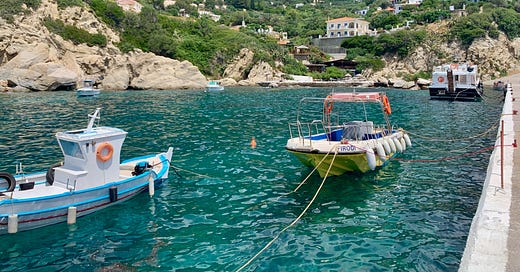



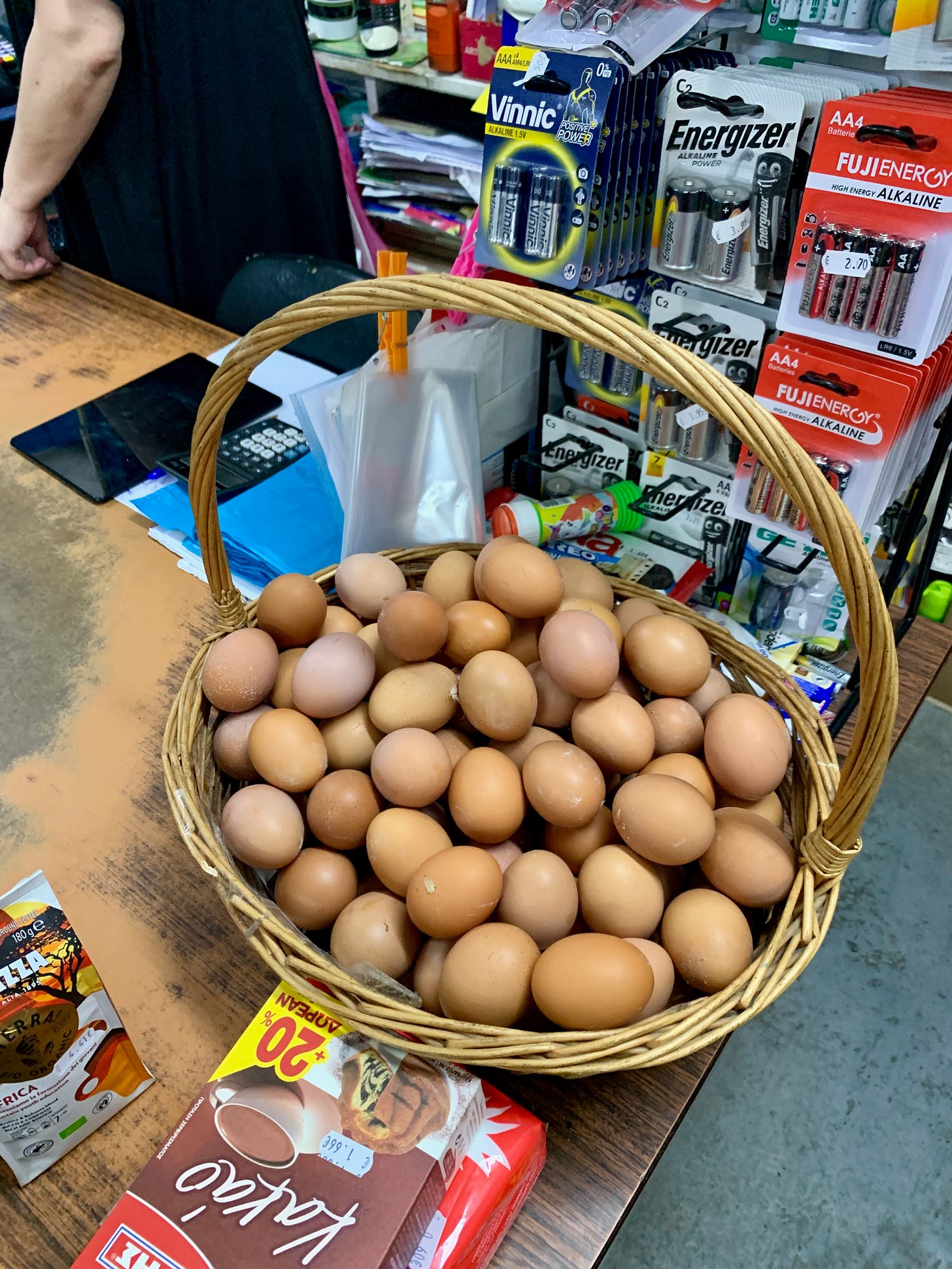
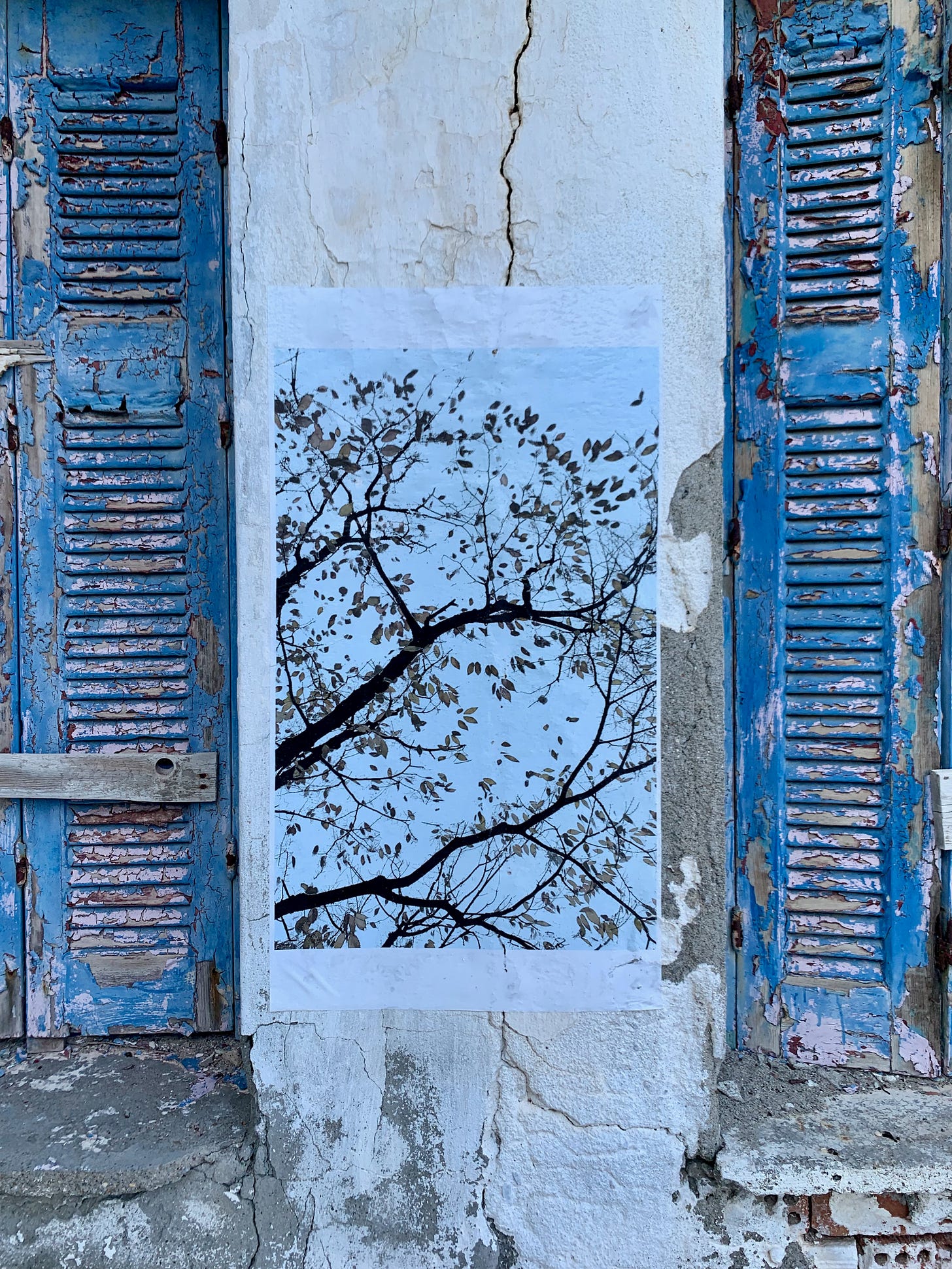
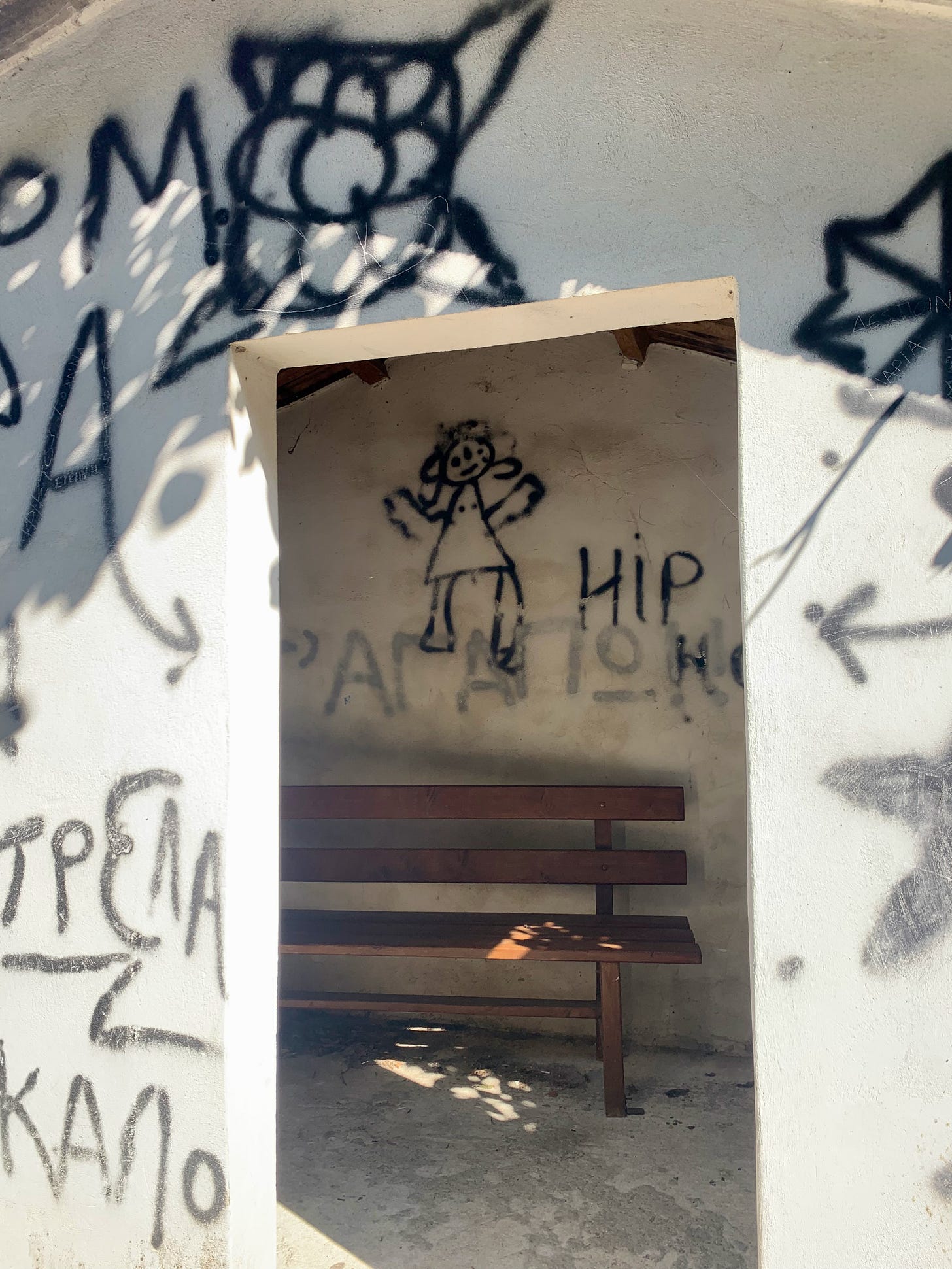
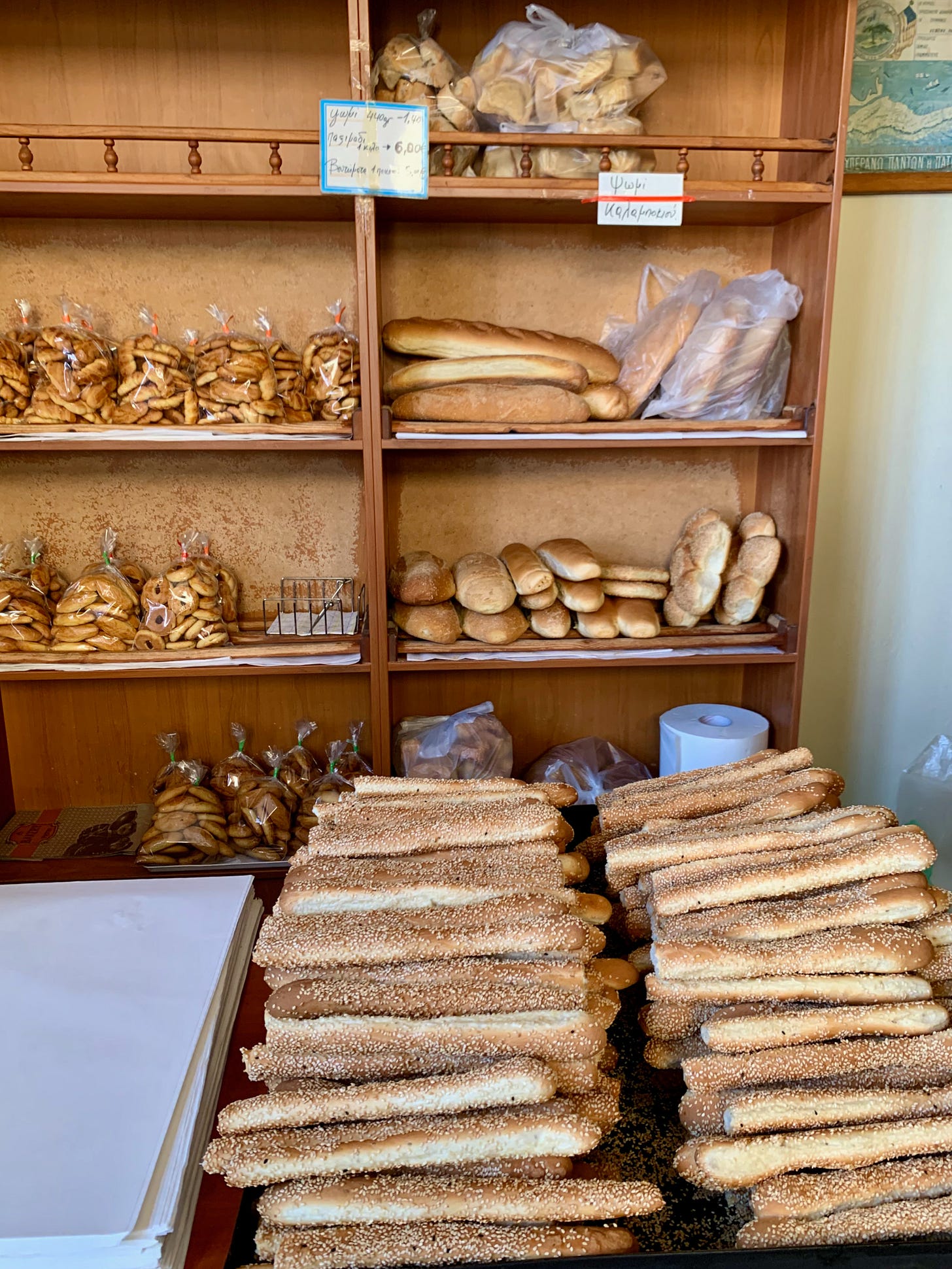

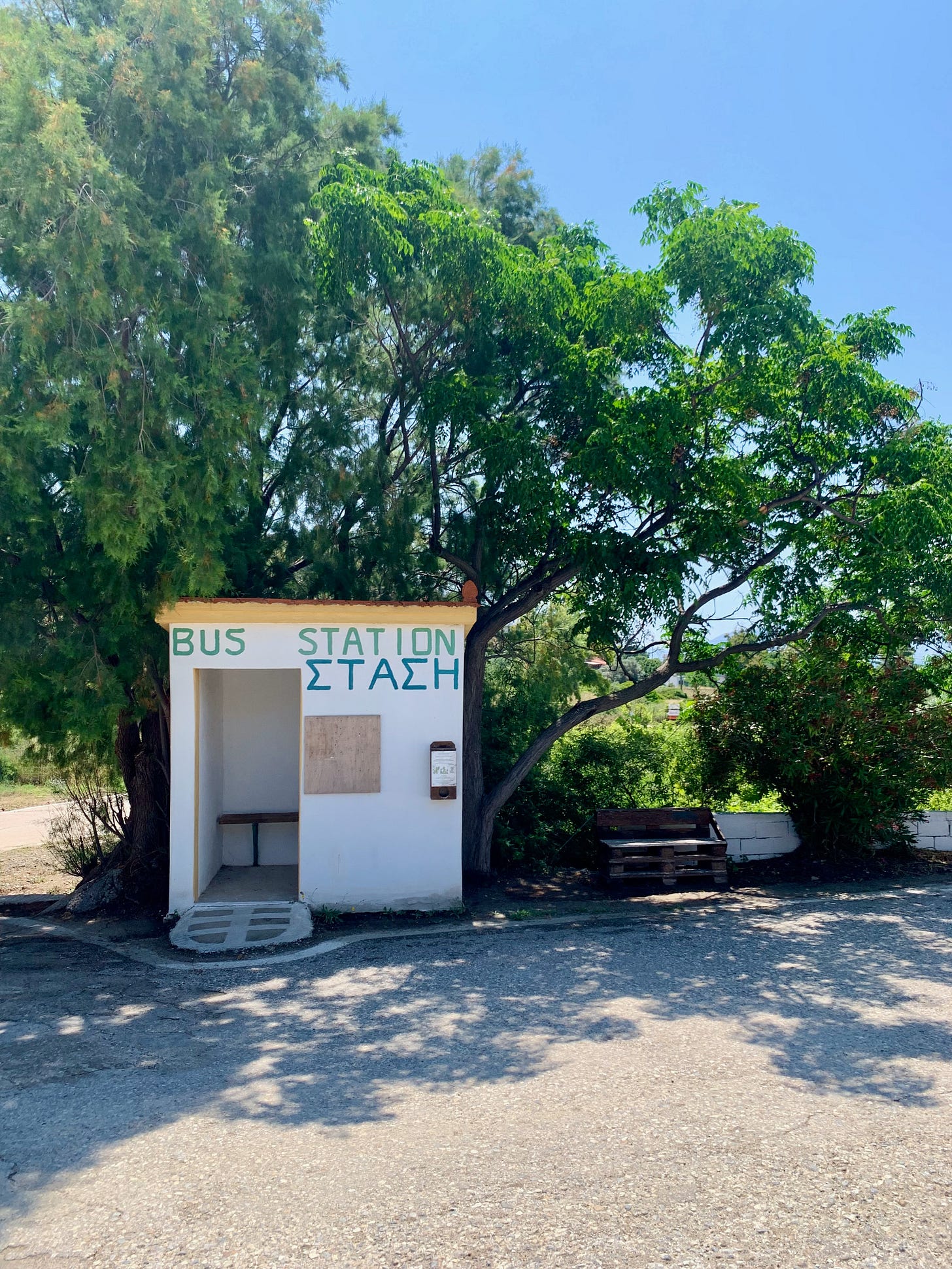
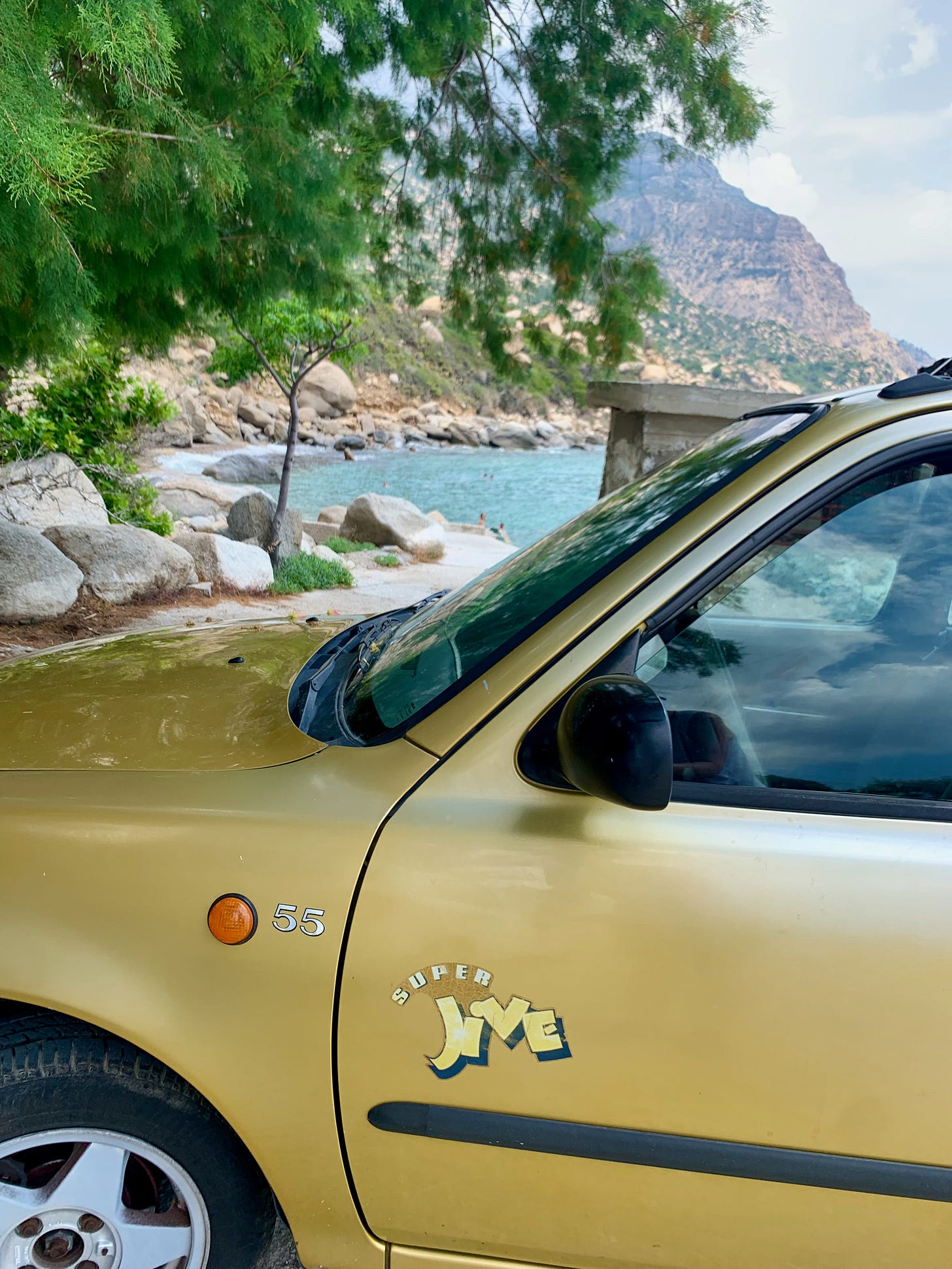
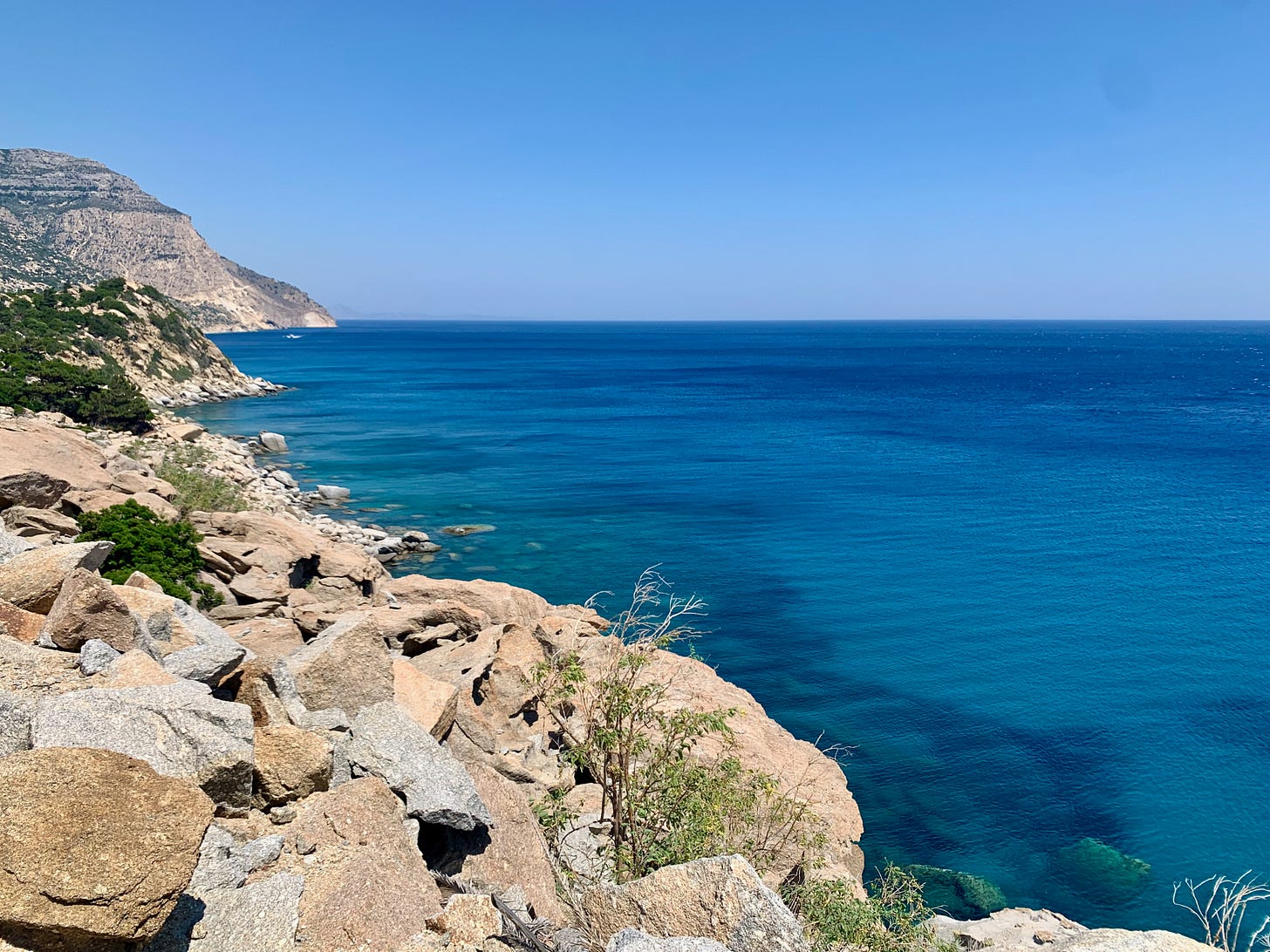
Hi Erin, first of all, I love your writing. You could, without a doubt, be a book writer ;-).
I was wondering if you know the book Ikigai: The Japanese secret to a long and happy life, written by Héctor García & Francesc Miralles? The book is about finding your "ikigai" (which means: your reason to exist) and the writers have researched what the secrets of living a long, fulfilling and healthy life are of Okinawa, Japan (also one of the five blue zones).
I found this book to be a real eye opener. Also, with all the technical developments (I very much recognize your struggle with technology and social media) in today's modern society, we often forget that so many 'wheels' have already been invented loooooong before we ever came into this world. And nowadays, we spent so much time and effort in trying to reinvent the wheel, by searching for 'the secrets' that bring us happiness, fulfillment, purpose, health and piece of mind. I very much believe in taking a step back and learn more from the older generations and our ancestors.
Also, I believe that indigenous people from many different areas all around the world have so much wisdom to share. They're the experts of learning from their ancestors and applying this wisdom into their own lives. I also love how many of them are 'one with the land'; they don't feel like they own it, they are part of it. They prove that human kind does not need materialism, capitalism or technology to live a wholesome and satisfactory life. We (as part of the Western culture) just need to learn the ability to step away from (some of) it, instead of trying to reinvent the wheel and find the golden key.
Anyway, just a bit of my two cents on this topic ;-) and if you haven't read the book yet, I'd highly recommend it. It's very much in line with the revelations that you have been describing in your last two blogs.
Lots of love from Utrecht!
I'm so looking forward to meeting you in person, Erin! My neighborhood is full of retired people, though it's not a retirement community. They bought their houses 30, 40 years ago and have no mortgages. The dream :-/ Staying in one place to build equity, the major vehicle of wealth. I remember looking at that model in my 20s and 30s and thinking, no, I want to see the world...live in places and not just visit them. And of course, senior living and assisted living.... a couple of older friends are in those places and one has commented that she feels boxed away and forgotten, though it does provide some sad kind of community... I've been impressed recently with a different way I witnessed this last June, a 70-something woman who took a lease on a fabulous Victorian house in Petaluma CA and rents out rooms to other seniors. For her it is a way to live in a beautiful old home that she could otherwise never afford. I stayed there for 4 days in June. Remarkable experience. Hope we get to chat when you're in town, after we get back in November!